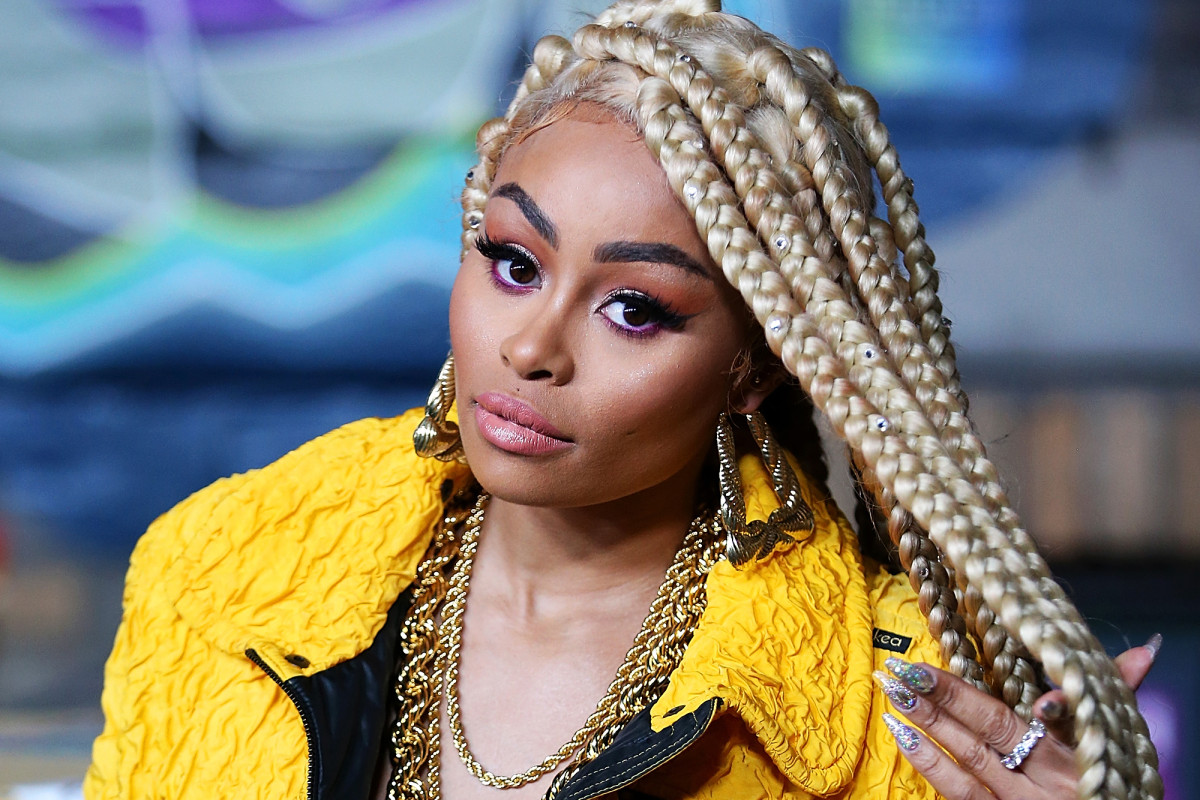-
Most people know Blac Chyna for her brief engagement to Robert Kardashian, which ended shortly after she gave birth to their daughter, Dream. Others know her from a video of the social media influencer using her daughter’s stroller to hit a woman at a Six Flags amusement park on Easter Sunday earlier this year. Regardless of what you know her for, Blac Chyna’s recent collab with Whitenicious by Dencia's skin-bleaching product brand took her reputation to new heights. Her decision to host the brand’s “Blac Chyna Collection” launch in Lagos, Nigeria disgusted Black millennials worldwide.
-

Photo: Blac Chyna
- By publicly endorsing the notion that “light is right” when it comes to skin tone, Blac Chyna established herself as an obstacle in the way of every Black millennial fighting to break the stigma attached to dark skin. Black individuals in Africa and across the Diaspora know this stigma all too well. While growing up as a first-generation Nigerian-American, I was often advised to avoid playing in the sun for too long so that my chocolate, brown skin wouldn’t get any darker. Such advice challenges the normalcy of having dark skin and fosters self-hatred that can take years of education and therapy to unlearn. Those who don’t consider either of those routes are likely to reach for a skin-bleaching product instead.
-
The stigma associated with dark skin in places like Africa and the Caribbean is deeply rooted in colonialism. As European nations colonized African countries throughout the late 1800s and early 1900s, the Black people they ruled over increasingly perceived white skin as a key to the higher quality of life their colonizers experienced. Although several African countries achieved independence from these nations roughly half a century ago, dark skin is still frowned upon by Africans, Black people in the Diaspora, and non-Blacks throughout the world. With such a global resistance against dark skin, skin-bleaching brands like Whitenicious by Dencia capitalize — but at what cost?

Photo: Dencia
Dencia, otherwise known as Reprudencia Sonkey, promoted her products as a remedy for dark spots in a heated interview with Ebony. However, an image she once posted online to help drive sales shows that her products remove much more. By collaborating with Dencia, Blac Chyna made it clear that she wants Nigerian women to experience a similar “before and after” experience with their skin tones. Clearly, there are levels to being a Black female trailblazer in the makeup industry: Rihanna’s FENTY, Kerry Washington’s Neutrogena collection, and Jackie Aina's Too Faced collab are great examples of beauty brands that are inclusive of dark skin tones, rather than in resistance of them.
‘Prince EA”, the recipient of Black Enterprise’s 2018 Social Media Influencer of the Year Award, challenges other influencers to ask themselves one question: “when people come to your page, do they walk away better or worse?” In a climate that places social media influencers on pedestals, Blac Chyna must be held accountable for the implications of her skin-bleaching ad on the Black diaspora. If we can call out Kendall Jenner for unacceptable marketing, we must have that same energy with Blac Chyna, and other Black influencers who poison popular culture. With nearly 15 million followers on Instagram alone, her Whitenicious ad will undoubtedly reach countless Black children and adults across the world who are constantly fighting to embrace the skin they’re in.
Ready. Set. Boss. Our daily email is pouring out inspiration with the latest #BlackGirlBossUp moments, tips on hair, beauty and lifestyle to get you on track to a better you! Sign up today.
